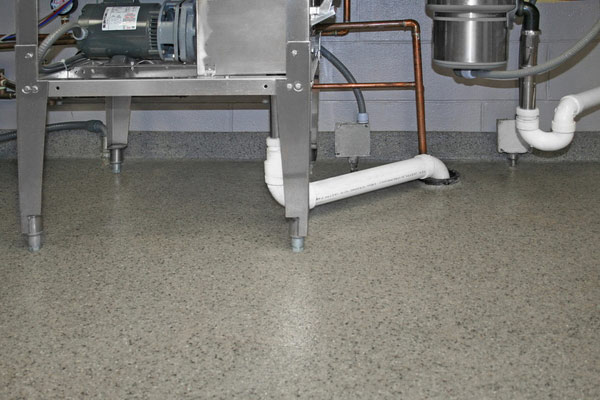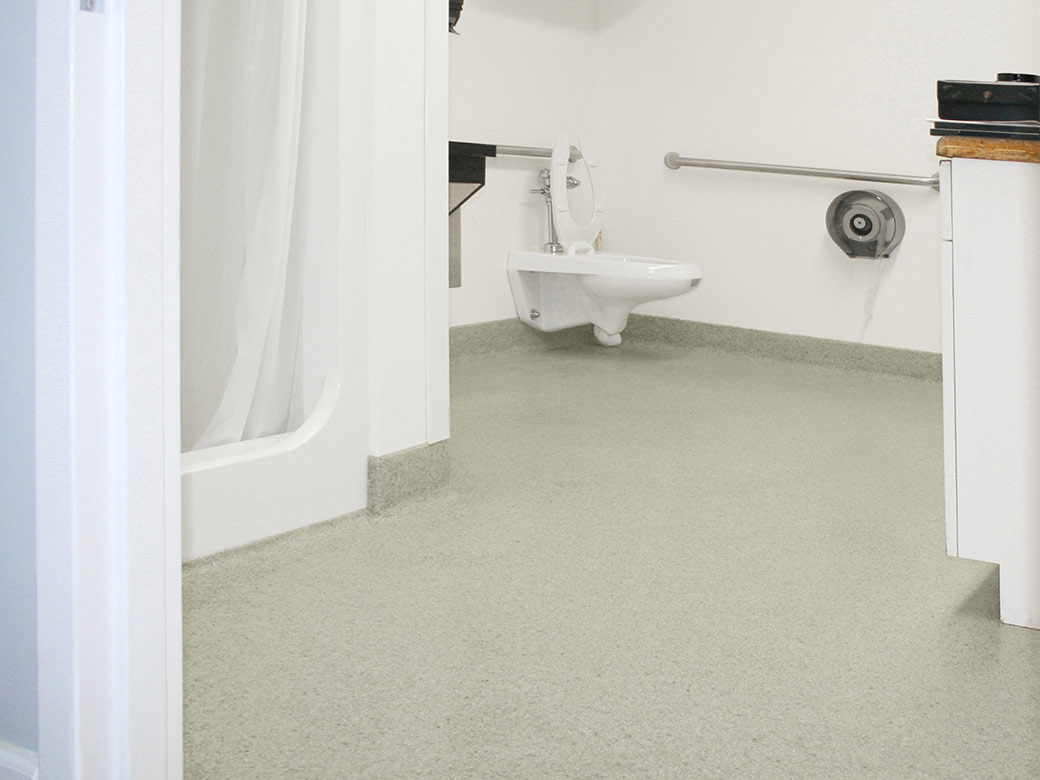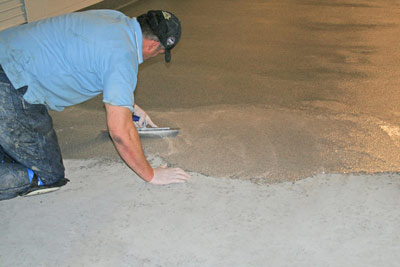Cementitious urethane flooring (CUF) is often marketed as the ideal floor system for areas where heat resistance is a critical requirement or for areas at risk of high contamination, such as commercial kitchens and food prep areas.
CUF, also commonly referred to as urethane mortar or urethane concrete, might sound as if it’s one of the best solutions for flooring in commercial kitchens, but we’re here to set the record straight and help you avoid the many pitfalls of choosing a CUF floor coating.
What is cementitious urethane flooring?
Comprising three main components—portland cement, water, and aggregate—CUF is essentially a concrete floor. The only difference between CUF and a regular concrete flooring system is the addition of a urethane coating to reinforce the floor and make it harder.
This does provide increased durability when compared with a regular concrete floor, but CUF has very few additional advantages.
If you are considering a new floor installation for your food production facility, commercial kitchen, or restaurant, take a look at our Everlast® Epoxy systems, which offer many benefits over a CUF alternative.

Commercial kitchens need a nonporous floor
In an environment where water, grease, and fat often end up on the floor, you need a flooring system that won’t allow liquids to soak into the substrate. Porous floors allow liquids to seep through to the substrate, which causes damage and a damp haven in which bacteria can thrive.
CUF claims to be nonporous, but the reality is that only the top coating is moisture-proof. Over time, as the topcoat is subjected to the wear and tear of a busy commercial kitchen, the coating wears away and the floor becomes porous—and that’s when your flooring problems will begin.
For a truly nonporous floor for any environment where water ingression may be an issue, choose a resin-rich pourable Everlast® Epoxy floor that offers the self-containing, seamless, moisture barrier that you need.

Install a “healthy” kitchen flooring system
Adhering to strict hygiene standards is something that all food production facilities take seriously.
CUF coatings are often promoted as a sanitary flooring solution, but in reality, cementitious urethane is a type of concrete that’s prone to pitting and condensation, which creates microscopic pockets of dampness that allow bacteria to penetrate the floor.
The curing process of concrete floors means that microorganisms can also become trapped and shorten the lifespan of the CUF coating.
Protecting your floors against debris and bacteria is easy with an Everlast® Epoxy floor. An EPA-registered antimicrobial additive ensures that every layer of your flooring—from topcoat to substrate—will restrict the growth of microorganisms.

Easy and cost-effective to install
An important consideration for any commercial kitchen flooring solution is the ease of installation. A busy kitchen cannot afford downtime, which is why Everlast® Epoxy floors are a great choice: they can be installed overnight and be ready to take foot traffic the following morning.
Unlike CUF, Everlast® Epoxy floors have no complex installation issues to contend with, such as CUF’s sensitivity to humidity (which can leave unsightly marks as the floor cures). Our epoxy resin floors are pourable and trowelable, which means there is very little waste, making it a cost-effective option.

Make the right flooring choice
At first glance, it’s easy to think that CUF and epoxy resin surfaces have similar properties. But if you’re a facility manager in the food industry and need to choose between a cementitious urethane and epoxy floor, make the better choice and choose Everlast® Epoxy to save yourself a costly headache further down the line.
To ensure you choose the right floor for a commercial kitchen, speak to our Everlast® Epoxy experts at (800) 708-9870 to discuss your unique requirements, or order a free flooring sample to see and feel the quality of our superior floors for yourself.
